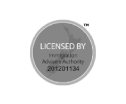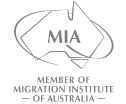So, you’re contemplating a move to the land Down Under, drawn by its economic opportunities and lifestyle. Excellent choice! But before you pack your cricket bat and budgie smugglers, there’s a crucial question you need to answer: Will your hard-earned qualifications from overseas be recognized in Australia? This isn’t just a formality; it directly impacts your career prospects, visa eligibility, and overall success in your new home. Let’s explore the essential steps to ensure your credentials hold weight in Australia.
1. Understand the Importance of Skills Assessments and Licensing
In many professions, simply holding a degree or certification from your home country isn’t enough in Australia. A skills assessment is often required for migration purposes, particularly for skilled visas like the Subclass 189 (Independent) visa. This assessment verifies that your qualifications and experience meet Australian standards.
Furthermore, certain occupations require you to be licensed or registered to practice. This is particularly true for fields like medicine, engineering, teaching, and law. Before you even start the visa application process, investigate whether your profession is regulated in Australia and what steps you need to take to obtain the necessary credentials. The Australian Government’s Department of Home Affairs website has some information, although you’ll need further detailed investigation.
2. Identify the Relevant Assessing Authority
For skilled migration, you’ll need to have your qualifications assessed by the relevant Australian assessing authority for your occupation. These authorities are designated by the Australian government to evaluate qualifications and experience against Australian standards.
Finding the correct assessing authority is crucial. Each occupation has a specific designated body; for example, engineers are assessed by Engineers Australia, while IT professionals might be assessed by the Australian Computer Society (ACS). The assessing authority will carefully examine your educational credentials, employment history, and other relevant documentation to determine if they meet the required standards. You can find a comprehensive list of assessing authorities on the Department of Home Affairs website.
3. Scrutinize the Assessment Criteria
Once you’ve identified the correct assessing authority, the next step is to thoroughly review their assessment criteria. Don’t just skim it – understand it inside and out. These criteria outline the specific requirements your qualifications and experience must meet to be deemed equivalent to Australian standards.
Pay close attention to:
- Educational qualifications: What specific degrees or diplomas are recognized? Are there any specific course requirements or credit hours that must be met?
- Work experience: How many years of experience are required? Does the experience need to be in a specific role or industry? What level of responsibility is expected?
- English language proficiency: Most assessing authorities require a certain level of English language proficiency. Check the specific requirements for your occupation and prepare accordingly (e.g. with an IELTS test).
- Document requirements: What documents are required to support your application? Certified copies, transcripts, letters of reference – the list can be extensive.
Carefully compare your qualifications and experience against these criteria. Doing so will help you determine whether you’re likely to receive a positive assessment and identify any gaps you need to address. If you are unsure, most assessing authorities offer a preliminary assessment for a fee; it might be money well spent.
4. Gather and Prepare Your Documentation Meticulously
The devil is in the details, and nowhere is this truer than when preparing your documentation for a skills assessment. Incomplete or poorly prepared documents can lead to delays or even a negative assessment.
Here’s a checklist of documents you’ll likely need:
- Educational transcripts and certificates: Obtain official transcripts from your university or college, and certified copies of your degrees or diplomas.
- Employment references: Secure detailed letters of reference from your previous employers, outlining your job title, responsibilities, and dates of employment. Ensure the letters are signed by a senior manager or HR representative.
- Curriculum Vitae (CV): Prepare a comprehensive CV that highlights your skills, experience, and achievements. Tailor it to the specific requirements of the assessing authority.
- Passport and other identification: Provide certified copies of your passport and other forms of identification.
- English language test results: Include your official English language test results (e.g., IELTS or PTE).
Ensure that all documents are translated into English by a certified translator if they are not originally in English. Double-check that all copies are certified by a notary public or other authorized official.
5. Consider Professional Assistance
Navigating the complex world of skills assessments and visa applications can be daunting. If you’re feeling overwhelmed, consider seeking professional assistance from a registered migration agent. A registered migration agent in Australia can provide expert guidance on the assessment process, help you prepare your application, and represent you in your dealings with the assessing authority and the Department of Home Affairs.
While hiring a migration agent involves a cost, it can be a worthwhile investment, especially if you have a complex case or are unsure about any aspect of the process. Their expertise can increase your chances of a successful outcome and save you valuable time and stress. Be sure to check their credentials and registration status with the Office of the Migration Agents Registration Authority (OMARA) before engaging their services.
Conclusion
Migrating to Australia is a significant undertaking, and ensuring your qualifications are recognized is a critical step in the process. By understanding the importance of skills assessments, identifying the relevant assessing authority, scrutinizing the assessment criteria, preparing your documentation meticulously, and considering professional assistance, you can increase your chances of a successful outcome and lay the foundation for a fulfilling career in Australia. Good luck!










